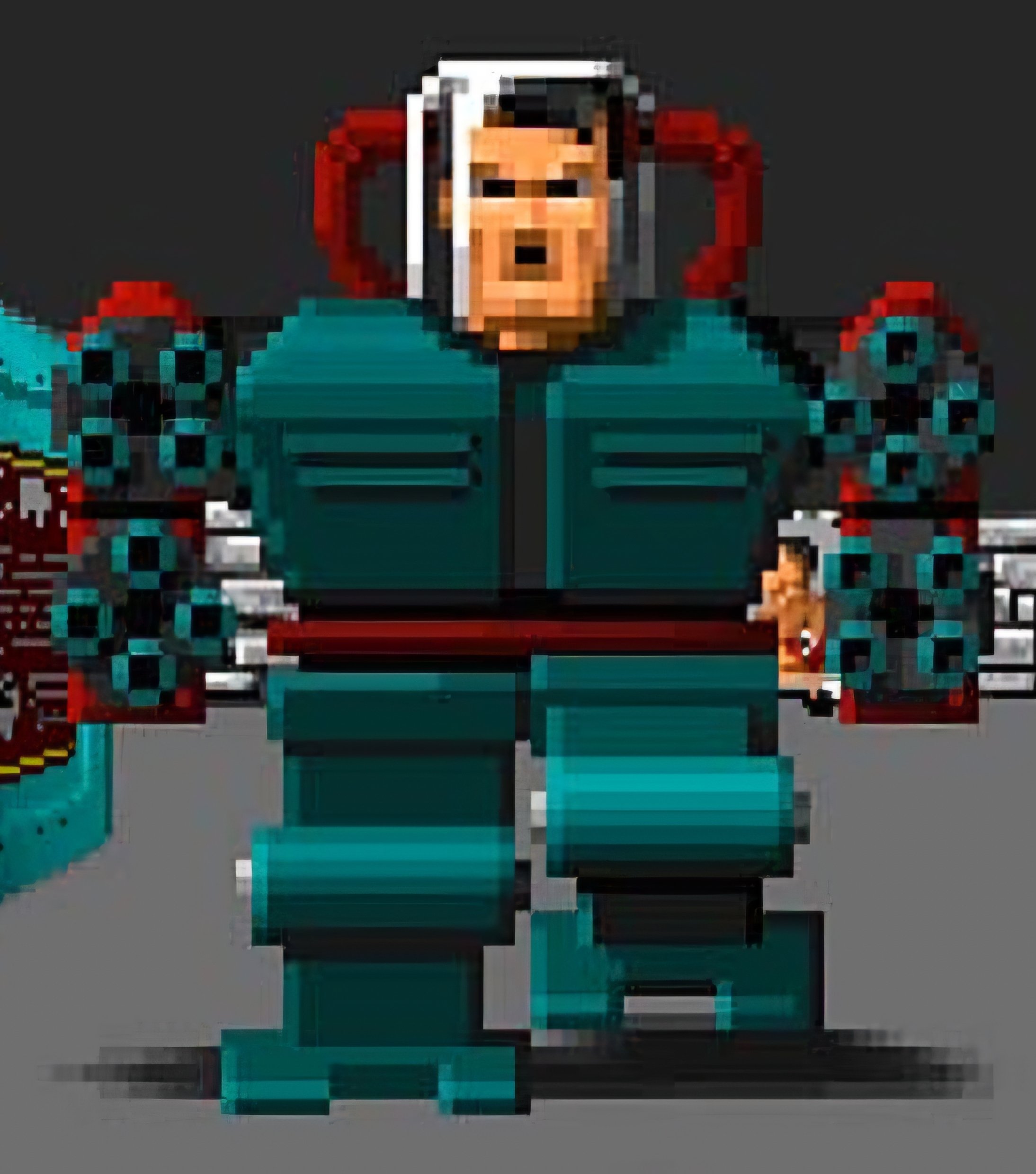- cross-posted to:
- [email protected]
- cross-posted to:
- [email protected]
Agreed. Idk how they reuse specifically, but it is fine for sure - to a point. As long as your game doesn’t have 3 enemy types that are recollored across it or all environments are the same everywhere (hello, Dragon Age 2)… use what you have effectively.
The criticism in this case is completely bonkers. They reuse assets from previous games, even adding more while developing.
This only means that they have an ever increasing repertoire of assets from all their games, from which the designers can freely choose. And then of course they match the asset to the new game (adding a grunge pass for a zombie game is the example given)
This is the optimal way of doing it. They save time and money and have lots of different assets to choose from.The reused map designs in Dragon Age 2 was so annoying. It’s up with there with Mass Effect 1’s planet exploration.
The saving grace now is that you can burn through DA2 in a couple of days if you’re really dedicated to move into inquisition. It’s too bad with the gameplay since there are some hugely key plot points revealed in it
I was gonna say.
For a game like Fortnite for example reuse of assets is vital to make the constant updates possible - without that steady flow of changes the user base pretty sure would dwindle fast (as already regularly is the case at the end of their “chapters” and “seasons”). They have to balance old and new parameters a lot to not alienate any/or bore their customers - not the easiest thing to do according to their fan forums… :D
This feels like complaints over asset flips bleeding over into first-party asset reuse, because the people complaining don’t understand why the former is objectionable. It’s not that seeing existing art get repurposed is inherently bad (especially environmental art… nobody needs to be remaking every rock and bush for every game) but asset flips tend to be low effort, lightly-reskinned game templates with no original content. Gamers just started taking the term at face value and assumed the use of asset packs was the problem, rather than just a symptom of a complete lack of effort or care on the developers’ part
Do asset flips even happen anymore? I feel like they were a problem that Stephanie Sterling brought to light a decade ago when Steam opened its floodgates to anyone who wanted to sell a game, but it seems to me as though standard market forces made them nonviable in just a few years’ time.
They are all over the place, they just don’t get promoted much and get buried in steam releases.
Right. I feel like they were a self correcting problem all along. They get buried in Sturgeon’s Law and that’s the end of it.
Except for that one guy who tried to copyright claim Steph’s channel. That guy needs something more. Like any kind of consequences at all for false copyright claims.
I’d normally agree, but that’s the fifth Hitler I’ve killed, come on!
That’s standard procedure. Elden Ring’s animations and enemy moves are mostly reused assets from previous games and it shows when the models morph here and there because the rig is recycled. Don’t remember anyone complaining about it even though it actually is noticeable.
Agreed. Especially if they’re creative like the halo devs and only use one rock.
That kinda reminds of something. Earlier this summer I had to go out of town and stay in a hotel for work. The hotel lobby had this decorative box with lights in it, but it also had these fake river stones or whatever to look like pieces of colored glass. But they all had the same shape, which was unique enough that at first glance every piece looked totally different.
I remember it being a big deal, well, some deal for a brief while, that God of War Ragnarok had reused boat animations from the previous game. Similarly for Horizon Forbidden West I think.
Anyway, sports games come annually and literally feel like the same game with some adjustments here and there and they’re usually the best sellers lol, so this issue feels like a very “online thing”, or perhaps the title makes it seem like there’s a big inexcusable issue that needs a “defence”.
Imma need at least 6 new testicle types to explode! Listen to your playerbase! Every damn nazi has the same balls?! Get your heads in the game Rebellion.
I don’t wanna see some Nazi’s testicles explode. I wanna see the Nazi’s face while his testicles explode. We are not the same.
Yeah, Capcom figured that out ages ago with Monster Hunter.
They tweak some movesets on the skeletons, they improve the ai a bit. They create new textures, and spend their time making endgame bosses a more unique.
My favorite example is Kushala Daora. I don’t exactly know how many times his skeleton has been reused, but I know Monster Hunter World had at least three reuses of it.
But they always have unique fights for final bosses, even if the Elder Dragon reused assets.
Programming is all about reuse in general. Reuse is part of good applications.
Cough cough Yakuza
Shaw explained that the act of asset reuse is essential in stopping crunch
Utter bullshit, you stop crunch with realistic timeframes and competent planning/project management.
Asset reuse could be part of that sure, but making out like it’s essential is a geometric fractal of red flags holding other, smaller, red flags.
Genuine curiosity: are you a professional game developer?
Apologies for the delay, my instance is having problems with communities so i can’t reply with that account.
To answer the question, not anymore.
The crunch culture was a big part of me leaving.
Honestly it’s not that different in type from non-game dev houses, the difference is in the magnitude.
I understand why these things happen, the reasons just aren’t good enough for me.
Poor planning compounds with ridiculous timeframes to create an almost immutable deadline to deliver unrealistic goals.
The problem is, they’ll jump right back in to the next project and make exactly the same mistakes. At what point does it stop being mistakes and starts being “just how things are done”.
One of the main reasons this works at all is that they take young idealistic programmers who want to work in their dream industry and throw them into a cult of crunch where everyone is doing it so it must be ok or this is the price of having my dream job.
it’s certainly not all studios and it seems to have gotten marginally better at the indie to small-medium houses but it’s prevalent enough that it’s still being talked about.
When you worked in games, how did your team deal with the unplanned scenarios where a feature, or even the core game, wasn’t fun and you needed to go back to the drawing board?
Depends on the team.
On paper what you’re “supposed” to do is iterate through gameplay mechanisms and scenarios by building up the bare minimum needed to get a feel for it, then once you have something viable you proceed further along the development process.
In reality it really depends heavily on context, sometimes you find a particular scenario works fine standalone but not as a part of the whole, or some needed balancing change elsewhere breaks the fun of something established, late additions can also cause this.
but again that depends heavily on the type of game, rpg’s are more sensitive to balancing changes than racing sims for example.
Specifically we’d usually evaluate the tradeoff between how much it doesn’t work and how much work it is to “fix” it, sometimes it’d get cut completely, sometimes it’d get scaled back, sometimes we’d re-evaluate the feature/scenario for viability and make a decision after that re-evaluation and sometimes we’d just bite the bullet and work through it.
Over time you get a bit more cautious about committing to things without thinking through the potential consequences, but sometimes it just isn’t possible to see the future.
I understand the realities of managing a project like that, at the same time these kinds of things are known upfront to a degree and yet people always seem surprised that the cone of uncertainty on a project like that is huge.
As i said, i have no problem with re-use, i have a problem with saying re-use is “essential” to stopping crunch, like the management of a project like that isn’t the core of the problem.
Careful, I made the exact same comment and you’ll find it downvoted to the bottom there.
Do you think you end up with a more realistic development timeline by remaking things you’ve already made? Your comment can end up downvoted for calling one of the most common industry practices, for very practical reasons, “cutting corners”.
If it’s an integral and common industry practice, how has the industry not entirely eliminated crunch already?
Because while it’s a tool in one’s tool belt to work smarter, it is obviously not the start and end of where crunch comes from. Nor is it cutting corners.
Ah so we are picking and choosing whose statements we take as absolutes then.
Because it’s fucking inane. Yes, it’s only one part of the problem - nothing was ever stated otherwise, he’s simply speaking on the topic at hand.
Do you also say “no, ALL lives matter?”
“Essential” implies more than just a small part, but if you want to claim otherwise you are free to do so.
Do you also say “no, ALL lives matter?”
Because project management is comparable to civil rights? That’s some weak sauce whattaboutism.
I think we might be talking to a project manager.
Downvotes with no actual reasoning behind them?
I am shocked, shocked i tell you.
When unreal 3 was prominent you could pick out geometry from several different games. Things looked vaguely similar.
Not inherently an issue will see how the game is. These games have been the definition of sale in the past. Good dumb fun occasionally
This seems really dumb. Yes, reuse your assets in the next game, but also make new ones. Then I get more variety, plus I get some of the nostalgia from the last game
Shaw explained that the act of asset reuse is essential in stopping crunch
Well aren’t we all stupid thinking crunch was caused by poor project planning? The solution all along was simply to cut corners!
The solution was to not reinvent the wheel. Any smart developer reuses assets.
And through that alone we have abolished crunch culture.
Cause the game is still sold for full price.
Every game reuses assets. Some are just more clever about it than others.
I made a tool that migrates from one DB format to another. Then another format was introduced. Of course I reused the assets from the tool to expand the tool to migrate to the new DB format. But then I know more of what can go wrong with the tool, so even then testing took longer, but the tool ran cleaner.
So only games that are made from scratch can charge full price? What about reusing code? Engine? Animations? Textures? Lighting system? Rendering backend?.. Games are made of everything that came before, being angry about a game using assets that were originally developed for an older game is like being angry about a movie reusing props made for an older movie, should they burn all of the Christmas decorations between one movie and the next? Or can the studio hang the same glass ball on two different movies? Does that detract from the movie? Will you really only consider it’s worth the full price if all props were made exclusively for that movie?..










